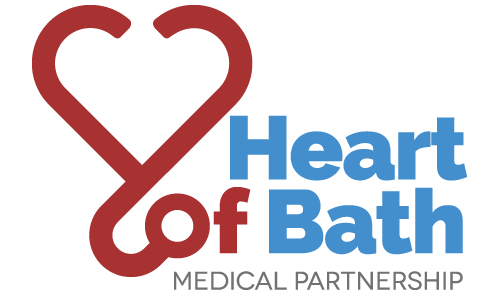Confidentiality
Many parents and young people do talk about health care problems together, but many do find it very difficult, especially when this may be of a personal nature such as contraception or sexual health, depression or drug problems. Asking your Doctor for help and advice can be very reassuring, and can help relieve the stress you may be feeling in thinking about such issues.
You are very welcome to bring a friend, parent or partner with you to your appointment for support.
Even if you are under 16 years of age, information about you remains confidential, just as it would for an adult. If you seek advice for any problem, from a common complaint to something more personal, your Doctor or Nurse will not tell anyone else what has been discussed.
Exceptions
In exceptional circumstances, the Doctor may believe that keeping a secret puts either you as the patient or someone else at risk of harm. For example, if he/she suspects you were being seriously hurt in some way and may wish to involve other Health Care Professionals in helping you. Of course, this would not be passed without first discussing this option with you.
Off the Record
Off The Record – aims to improve the emotional, physical and mental well-being, and self esteem of young people aged up to 25 who live, study or work in Bath & North East Somerset – please visit www.offtherecord-banes.co.uk for more information.
A new pilot telephone helpline for young people aged 10-25 as an addition to our existing face to face services. All calls are free from UK landline and mobile networks – 0300 3033661. The helpline is open three evenings per week, Monday and Wednesday 5pm-8pm and Friday 4pm-7pm. The phone line is staffed by a team of experienced counsellors The helpline also has the option to leave voicemail messages if there is no one available to answer a call. This is available 24/7
Thinkuknow
The education programme from the National Crime Agency’s CEOP Command
Thinkuknow gives practical information and advice that aims to keep children and young people safe from sexual abuse on and offline. The approach of the programme is to develop their skills in identifying and avoiding risk, learning how best to protect themselves and their friends, and knowing how to get support and report abuse if they do encounter difficulties. Thinkuknow also offers information and advice to parents and carers, as well as professionals who work with children and young people by providing educational resources, including films, cartoons and lesson plans.
For further information and advice please visit www.thinkuknow.co.uk
HappyMaps
Worried about yours or your child’s behaviour or mental health and not sure what’s normal ? Wondering whether to go and see your GP ? Perhaps you’ve been referred to specialist services but there is a long wait…or perhaps you’ve been told the problem isn’t quite serious enough to be referred.
HappyMaps will signpost you to books, websites, counselling services and parents groups so you can find help and support for you and your child.
Youth Counselling
Kooth is an online counselling and emotional well-being platform for children and young people, accessible through mobile, tablet and desktop and free at the point of use.
Young Carers
Bath and North East Somerset Carers’ Centre is here to help young carers of all ages who live in Bath and North East Somerset.
Additional useful links
“The Parents’ Guide to Teaching your Teen Online Safety”.
Keeping your teen safe online is near the top of the worry list for parents today. Kids do everything online, from learning to socialising, gaming to shopping. For teens, learning how to recognise the risks and protect themselves is a life skill they’ll need for years to come.
It also shares valuable information such as:
- A practical guide for parents on how to keep teens safe online, including useful summaries of popular internet apps as well as the types of threats teens, could be exposed to online.
- Safety tips for using apps such as Instagram, TikTok (which has gathered 1 billion users in only two years), YouTube, Snapchat, Twitter, and Whatsapp. We also cover advice and safety tips for teens playing online multiplayer video games.
- Other online safety topics and advice such as sharing personal information, socialising online, cyberbullying, harmful content, influencers, body image, and mental health for teens online.
- Links to additional internet safety resources for parents from well-respected sources such as the NSPCC and the UK government’s own guidelines.
You can check out the full guide here: https://www.mytutor.co.uk/blog/the-parents-guide-to-teaching-your-teen-online-safety/


